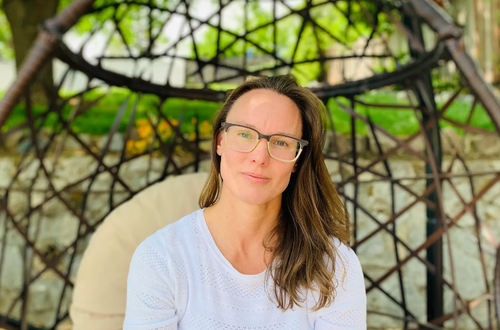|
Have you ever found yourself clinging to a few words to get you through your days? It’s amazing how we can hear something that rings true for us on a deep level, in that moment, and it somehow makes life more doable. This is how I feel about the words “Learn how to die, and you learn how to live”, from Tuesdays at Morrie. When we think about mantras, it can feel like a superficial solution to cope and improve well-being. After all, how can a few words repeated and kept close to the heart and soul really make a difference? As a clinical psychologist I love to dig deep, find the cause to a pattern, and challenge said pattern. I will certainly continue this work for myself and my clients, but I have also learned that certain words of wisdom can be life changing. Such words, or mantras, can lead to deep and meaningful change in the current moment. These words can come from a friend, a guru, a therapist, a character in a movie or book, a peer in a support group, or a perfect stranger. Wherever they come from, they are pearls of wisdom that we receive at the exact right time we need them. “Learn how to die, and you learn how to live” has become a mantra that I keep “front-and-center” on my mind, consistently. I repeat these words to soothe my soul. To some these words may mean to seize the day and to remember not to take life for granted. For me, these words go so much deeper. They mean that life, along with its glorious and beautiful moments, can also be full of tragedy, loss, disappointment, and hardship. When we experience such challenges, it can feel like we don’t want to continue existing or like we don’t know how to live this life with joy and meaning. This was certainly true for me, after the death of my son. I thought I could not survive. Parts of me did die, and some days living feels excruciating, which means I have learned how to die, and eventually this has taught me to live. When we experience hardships and lost dreams, we develop genuine empathy. When life leads us to feel like dying, we develop new depths. As we swim in these new and unwanted waters, we experience emotions never felt before, which then also enables us to make more space for other people’s experiences. We might not understand what they have gone through exactly, but we become better at sensing that their experience deeply affected them. Having been emotionally devastated leads us to judge less. Let’s face it, whenever we are devastated, there was a painful experience that went along with this. We might have regrets, our coping can be challenged, and initially we often don’t deal with things as expected. If we allow it, we can then learn to forgive ourselves for doing the best that we could in the moment, which also leads to withholding judgment from how others function. We are all doing the best that we can, at any given moment. Learning how to die, and as a result to live, allows us to fully get to know ourselves. When we have been pushed to our edge and experienced things we thought we could not recover from, we learn a lot about ourselves. We can learn that, when not given a choice, we can continue by taking one breath at a time. We also become more familiar with our needs and wants, which can lead us to take up space in a more authentic manner by speaking our truth, adjusting our priorities and boundaries, and as a result becoming more confident. If I could wave a magic wand, I would want this life to be free of suffering for everyone. Since I do not have this power, instead, I hope that we all can learn how to die, to learn how to live. When we accomplish this, when we take our hardships and losses, experience them fully, we become more empathetic, less judgmental, and discover a deep authenticity that connects us to ourselves and others … and that is living. Meet Our Contributing Author — Dr. Iris Pachler Dr. Iris Pachler is a licensed clinical psychologist with a flourishing private practice in Fair Oaks, California. She helps people discover new strengths, skills, coping strategies, and relationship patterns, as they navigate busy, complicated, and uncertain life circumstances. She has a kind, honest, and compassionate approach to help clients resolve and heal both big traumas, as well as small trauma that may not be obvious to an observer. Dr. Iris has also applied her clinical skills within the community mental health environment, by working in the hospital and correctional settings. Her passion is to provide quality counseling, assessment, diagnosis, and treatment. Outside of work, Dr. Iris values spending time with family, hiking, glamping, traveling, working out, and just relaxing, while enjoying sweet treats, of course. Lear more about Dr. Iris here.
0 Comments
Your comment will be posted after it is approved.
Leave a Reply. |
All Good Things Come From Gratitude.
Disclaimer:The information, opinions, and recommendations shared on Style My Soul are for information only and any reliance on the information provided is done at your own risk. We publish pieces by outside contributors representing diverse opinions, which don't necessarily reflect our own. The views are of the contributors are their own. Information provided by the contributors is presented as is it was submitted allowing the reader to hear the contributor's voice in their delivery. Style My Soul does not endorse, approve, or certify any information and/or brands referenced in its content.
© 2024, Style My Soul. All Rights Reserved.
